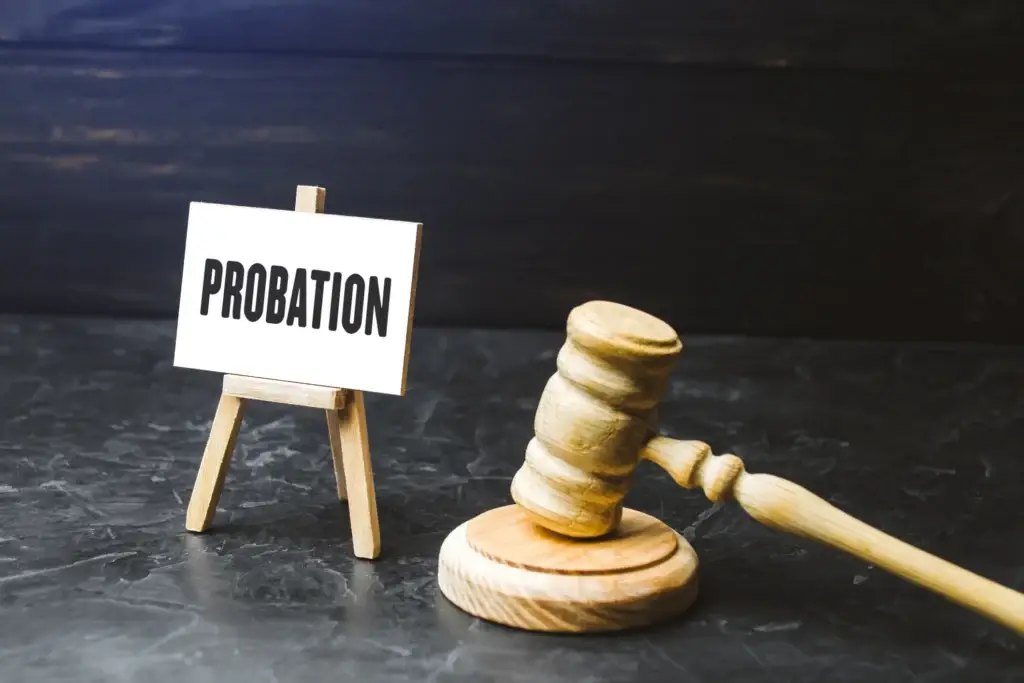April 21, 2025
Alcohol Awareness Classes for Underage Drinking Offenses: What Minors and Parents Need to Know

Receiving an underage drinking citation or facing charges related to minor in possession (MIP) of alcohol can be a profoundly stressful and confusing experience, not only for the young person involved but for their entire family. Courts frequently mandate young individuals involved in alcohol-related offenses to complete alcohol awareness classes. These requirements serve a vital dual purpose: they fulfill a necessary legal obligation and provide essential education designed to prevent future incidents and promote healthier choices during a critical developmental period.
This comprehensive guide is specifically tailored to address the unique aspects of alcohol awareness classes for underage drinking offenses. We will explore why these classes are mandated, delve into what topics are covered, discuss the benefits of completing them, compare online versus in-person options, and provide actionable tips for successful completion. Our goal is to provide clarity, support, and empower both minors and their parents or guardians to confidently navigate this requirement and turn a challenging situation into an opportunity for positive growth and learning.
Understanding Underage Drinking, Its Legal Definition, and Far-Reaching Consequences
Before exploring the specifics of the required alcohol awareness courses, it’s crucial to have a clear understanding of what constitutes underage drinking in the eyes of the law and the significant consequences it can carry.
What is Considered Underage Drinking in the U.S.?
The National Minimum Drinking Age Act of 1984 established the minimum legal drinking age as 21 across all states in the United States. Therefore, underage drinking refers to any consumption of alcoholic beverages by individuals who are younger than 21 years old.
Participants learn techniques for identifying high-pressure situations, developing assertive communication skills to resist unwanted influence, and making independent choices that align with their values and goals.
Common Offenses Associated with Underage Drinking:
While the specific legal terminology may vary slightly by state, common offenses related to underage alcohol consumption include:
- Possession of Alcohol by a Minor (MIP): Having alcoholic beverages in one’s control or presence while under the age of 21.
- Consumption of Alcohol by a Minor: Actually drinking alcoholic beverages while under the legal age.
- Attempting to Purchase Alcohol Underage: Trying to buy alcohol using false identification or attempting to have an adult purchase it for them.
- Underage Driving Under the Influence (DUI/DWI): Operating a motor vehicle with any measurable amount of alcohol in their system. This is often governed by “Zero Tolerance” laws, meaning the legal blood alcohol content (BAC) limit for minors is typically 0.02% or even 0.00% in some states, significantly lower than the 0.08% limit for adults aged 21 and over.
- Internal Possession: Some states have laws prohibiting a minor from having alcohol in their system, even if they were not caught in physical possession.
Consequences of Underage Drinking Offenses:
The penalties for underage drinking offenses can be significant and extend beyond immediate legal repercussions. Typical consequences handed down by courts and legal systems include:
- Court Fines and Penalties: Ranging from relatively minor to substantial financial penalties.
- Mandatory Community Service: Requiring a certain number of hours contributing to the community.
- Suspension or Revocation of Driving Privileges: Even if the offense didn’t involve a vehicle, an underage drinking citation can lead to delays in obtaining a driver’s license or suspension of an existing provisional or full license. This is a major consequence impacting independence.
- Mandatory Attendance in Alcohol Awareness or Educational Courses: This is a very common requirement aimed at education and prevention.
- Probation: Often, the minor will be placed on probation, requiring them to check in with a probation officer and comply with specific conditions, including completing the alcohol awareness class.
- Criminal Record: Depending on the severity and state laws, an underage drinking offense can result in a criminal record, which can have long-term implications.
These legal consequences can also trigger significant long-term impacts that affect a young person’s future opportunities, including:
- Academic Opportunities: Difficulty getting accepted into certain colleges or universities, especially for specific programs.
- Scholarships and Financial Aid: Eligibility for academic or athletic scholarships can be jeopardized.
- Future Employment: Background checks conducted by potential employers can reveal the offense, potentially limiting job prospects.
- Professional Licensing: Some professions require licensing that can be affected by past alcohol-related offenses.
- Insurance Premiums: Being listed on a parent’s car insurance policy or seeking their own policy in the future can result in significantly higher premiums.
Understanding the full weight of these consequences underscores why taking the mandated alcohol awareness class seriously is essential.
Why Courts Specifically Mandate Alcohol Awareness Classes for Underage Offenders
Courts across the United States specifically tailor and mandate alcohol awareness classes for minors involved in drinking offenses because they recognize the unique vulnerabilities and developmental stage of young people. These classes are seen as a crucial intervention tool with several key objectives:
- Targeted Education on Risks: Adolescents’ brains are still developing, particularly the prefrontal cortex responsible for decision-making and impulse control. Alcohol consumption during this critical period can have unique and lasting negative impacts. Classes educate minors specifically on how alcohol affects the developing brain and body, the increased risk of addiction when starting young, and other health consequences relevant to their age group.
- Addressing Legal Consequences: The courses explicitly detail the legal penalties associated with underage drinking offenses, including Zero Tolerance DUI laws, fines, license suspensions, and the creation of a criminal record. This aims to impress upon young offenders the seriousness of their actions in a structured environment.
- Developing Essential Life Skills: A significant focus is placed on building skills vital for young people, such as:
- Resisting Peer Pressure: Providing strategies and confidence to say no to alcohol in social situations.
- Making Healthy Decisions: Teaching critical thinking and decision-making frameworks to avoid risky behaviors.
- Developing Healthy Coping Mechanisms: Exploring alternatives to using alcohol to deal with stress, boredom, or social anxiety.
- Early Intervention and Prevention: By intervening early through education, courts aim to prevent a pattern of alcohol misuse from developing. These classes are often part of a broader juvenile justice or diversion program designed to rehabilitate and educate rather than solely punish, offering a path towards a clearer future.
For more information about the general philosophy behind courts mandating these types of educational programs for various alcohol-related offenses, you can visit our comprehensive guide: Reasons Courts Order Alcohol Awareness Classes.
What to Expect from an Underage Drinking Alcohol Awareness Class: Curriculum and Focus
An alcohol awareness class specifically designed for underage drinking offenders is structured to be relevant and impactful for a younger audience. While specific curricula can vary by provider and state requirements, you can generally expect the course to cover several crucial topics:
- Health Effects of Alcohol on Adolescents: This section goes beyond basic health risks to focus on how alcohol uniquely affects the still-developing adolescent brain (especially memory, learning, and decision-making centers), liver, hormonal systems, and overall physical and emotional development. The information is typically presented empathetically, focusing on long-term well-being.
- Legal Implications and Consequences Specific to Minors: This segment provides a clear, no-nonsense look at the laws and penalties that apply specifically to individuals under 21. It will cover MIP laws, Zero Tolerance DUI laws, the impact on driving privileges (learner’s permits, provisional licenses, full licenses), the process of getting a criminal record, and potential long-term legal hurdles.
- Decision-Making, Peer Pressure Management, and Social Influences: Recognizing the significant role peers play in adolescent behavior, courses dedicate time to exploring peer pressure dynamics. Participants learn techniques for identifying high-pressure situations, developing assertive communication skills to resist unwanted influence, and making independent choices that align with their values and goals. They may also discuss the influence of media and advertising on perceptions of alcohol.
- Understanding Addiction and Risky Behaviors: While not full addiction counseling, classes often touch upon the signs of alcohol dependence and the increased risk of developing substance abuse issues when starting to drink at a young age. They highlight the link between underage drinking and other risky behaviors.
- Promoting Responsible Choices and Exploring Alternatives: The course encourages participants to think about healthier ways to socialize, cope with challenges, and have fun without involving alcohol. This might include brainstorming alternative activities like sports, hobbies, clubs, volunteering, or spending time with supportive friends and family in alcohol-free environments.
Many modern alcohol awareness classes, particularly online ones, incorporate interactive elements, videos, real-life scenarios, and relatable examples to keep younger participants engaged. Some programs may also require a component involving parents or guardians, recognizing the importance of family support in reinforcing the lessons learned.
Online vs. In-Person Alcohol Awareness Classes for Minors: Which is Right?
When fulfilling the requirement for an alcohol awareness class due to an underage offense, minors and their parents often have the choice between completing the course online or attending a traditional in-person class. Both formats have distinct advantages, and the best choice depends on individual circumstances, learning style, and specific court requirements.
Benefits of Choosing Online Alcohol Awareness Classes:
Do not delay enrolling in the class. As soon as you receive the court order or instruction, choose a provider and begin the course.
Online courses have become increasingly popular and widely accepted by courts for several reasons:
- Unparalleled Convenience and Flexibility: This is often the most significant advantage for busy teenagers and their families. Online courses allow minors to complete the required hours on their own schedule, fitting the coursework around school, homework, extracurricular activities, part-time jobs, and family commitments. There’s no need to travel to a specific location at a fixed time.
- Learn at Your Own Pace: While there are usually time limits for overall completion, participants can often spend more time on sections they find challenging or move quicker through material they grasp easily.
- Privacy and Comfort: For some minors, discussing sensitive topics related to alcohol in a classroom setting with strangers can be uncomfortable or embarrassing. Completing the coursework privately in a familiar environment can make the learning process less daunting.
- Immediate Certificate of Completion: Upon successfully finishing an online course, including passing any required tests, the certificate is typically available for immediate download and printing. This is crucial for quickly satisfying court or probation deadlines without waiting for a mailed certificate.
- Accessibility: Online formats can be more accessible for those living in rural areas, those with transportation issues, or individuals with certain learning preferences or disabilities.
For an in-depth comparison exploring the various pros and cons of online versus traditional classroom settings for alcohol awareness education, check our detailed guide: Online vs. In-Person Alcohol Awareness Classes.
How Alcohol Awareness Classes Can Positively Impact Underage Drinking Behaviors
Research and anecdotal evidence consistently demonstrate that educational interventions like alcohol awareness classes have a positive impact on reducing future alcohol use and related risk-taking behaviors among minors. These classes go beyond simply lecturing; they equip young people with knowledge and skills that can genuinely influence their choices moving forward.
- Decreased Likelihood of Future Alcohol Misuse: By clearly communicating the significant health, legal, and personal consequences of underage drinking and providing strategies to avoid risky situations, these programs directly contribute to a decreased likelihood of recurring offenses. Early education serves as a powerful preventative tool.
- Improved Self-Awareness and Decision-Making Skills: The focus on peer pressure, refusal skills, and healthy alternatives helps young people develop better self-awareness regarding their own susceptibility to influence and empowers them to make more informed, independent decisions when faced with situations involving alcohol.
- Increased Understanding of Risk: The detailed information on the effects of alcohol and the legal system helps minors truly grasp the level of risk associated with underage consumption and driving under the influence.
For a more detailed examination of how educational programs, including alcohol awareness classes, can effectively reduce the rate at which individuals (both minors and adults) reoffend, visit our comprehensive article: How Alcohol Awareness Classes Can Reduce Recidivism.
Tips for Successfully Completing Your Underage Alcohol Awareness Class
Successfully completing your court-ordered alcohol awareness class is a critical step in fulfilling your legal obligations and demonstrates responsibility. Here are some practical tips for minors (and guidance for parents supporting them) to maximize success:
- Start Early: Do not delay enrolling in the class. As soon as you receive the court order or instruction, choose a provider and begin the course. Starting early allows you to work through the material without feeling rushed and provides a buffer for any unexpected technical issues or the need to review sections more thoroughly before a deadline.
- Choose a Legitimate Provider: Ensure the online provider is specifically approved by the court, probation office, or state authority requiring the class. Double-check their accreditation. How to Verify if an Online Alcohol Awareness Class is Legitimate
- Be Consistent: Dedicate regular, distraction-free time blocks to work on the course. Avoid trying to cram everything in at the last minute. Breaking it down into manageable sessions improves retention and reduces overwhelm.
- Take Notes and Engage Actively: Even in an online format, actively participate by taking notes on key points, reflecting on the scenarios presented, and thinking about how the information applies to your own life. The more you engage, the more valuable the learning will be.
- Utilize Course Resources: If the course includes interactive elements, videos, or supplementary materials, take advantage of them. If the provider offers customer support, don’t hesitate to contact them if you have technical difficulties or questions about the course content.
- Promptly Submit Your Certification: Once you successfully complete the course and pass any required tests, you will receive a certificate of completion. Download, print, and immediately submit this certificate to your probation officer, the court clerk, or the designated authority as required by your order. Do not wait!
Detailed advice on these and other strategies for successful course completion can be found here: Tips for Successfully Completing Your Alcohol Awareness Class.
Yes, in most jurisdictions, accredited online alcohol awareness classes are accepted for underage drinking offenses. However, it is absolutely crucial to confirm the specific online provider is approved by the court, probation officer, or state authority that issued your order before you enroll. Providers like Courseable ensure their courses meet state standards and are designed for court acceptance, but verification for your specific case is key.
The required duration of the course (typically 4, 8, or 12 hours) is determined by the court or probation officer and is usually specified in your court order. The length often depends on the severity of the offense, whether it was a first-time offense, and state laws. For a comparison of different course lengths and what they typically cover, refer to our post: 8 Hour vs 12 Hour Alcohol Awareness Classes.
No, unfortunately, completing an alcohol awareness class does not automatically expunge or remove the offense from your official criminal or driving record. The class is an educational requirement that is a consequence of the offense. However, successfully completing the course is often a mandatory condition of your probation or sentencing and is necessary to avoid further penalties or complications. It also demonstrates to the court that you have taken steps to address the issue.
This depends on the specific court requirements and the course provider’s curriculum. Some jurisdictions or providers may require a parent or guardian to participate in certain sections of the course or attend a separate parent session. Check your court order and the course provider’s details carefully.
Legitimate alcohol awareness classes designed for underage offenders tailor their content to be relevant and appropriate for a younger audience. They focus on relatable scenarios, the specific impacts of alcohol on developing bodies and minds, and skills like peer pressure refusal that are pertinent to teenagers.
Generally, you will need access to a computer, laptop, tablet, or even a smartphone with a stable internet connection. Ensure your device can play videos and audio.
The cost varies depending on the required length of the course and the provider. Online courses are generally more affordable than in-person classes. You can expect a 4-hour class to cost roughly $25-$60, an 8-hour class $60-$150, and a 12-hour class $100-$250 or more. For a detailed breakdown of potential costs, see our post: Costs of Court-Mandated Alcohol Awareness Classes.
For court-ordered requirements, the certificate is valid once submitted to fulfill the specific obligation of your case. The certificate itself doesn’t typically have an “expiration date” for this purpose. If the class was required for driver’s license purposes, the DMV might recognize it for a period (e.g., 2-5 years). Always check with the specific authority requiring the class. For a detailed explanation of certificate validity in different contexts, visit our post: Alcohol Awareness Class Certification: How Long Is It Valid?
If you have questions about the online course content, technical issues, or getting your certificate, contact the course provider’s customer support. For questions specifically about your legal case, probation terms, or court requirements, you should contact your probation officer or the court clerk. If you have legal representation, consult your attorney.
Crucially, check the provider’s website for specific state or court approval details and cross-reference this with the official website of the court or state authority requiring the class. Contacting your probation officer or court clerk directly is the most reliable verification method. For a complete guide on this process, see: How to Verify if an Online Alcohol Awareness Class is Legitimate.
Final Thoughts: Turning a Difficult Experience into Positive Growth
Receiving an underage drinking citation and facing a court mandate can feel overwhelming, but it also presents a valuable opportunity for education and positive change. Alcohol awareness classes are more than just a box to check for legal compliance; they offer young individuals essential knowledge, practical skills, and a deeper understanding of the potential consequences of their choices. Completing this requirement successfully is a significant step towards demonstrating responsibility and building a foundation for a healthier, safer future.
Courseable understands the specific needs of minors and their families navigating this process. Our accredited online alcohol awareness classes are designed to be flexible, convenient, and supportive, providing the necessary education in an engaging format. We aim to help young people fulfill their court requirements efficiently while empowering them with knowledge for better decision-making moving forward.
Take your first step toward positive change today.
Enroll in Courseable’s Online Alcohol Awareness Classes Courseable’s Online Alcohol Awareness Classes and turn this challenging situation into a valuable learning opportunity and a step towards a clearer future.
Disclaimer: Seek Professional Guidance
This article provides general information for educational purposes only and is not intended as legal advice, medical advice, or professional counseling. Laws regarding underage drinking and required classes vary significantly by jurisdiction. You should always consult with your attorney, probation officer, the specific court involved in your case, or the relevant state DMV or licensing authority to confirm the exact requirements applicable to your specific situation and to definitively verify the acceptance and legitimacy of any online course provider before enrolling. Ensure you have reliable internet access and a compatible device to complete online courses.
Related Posts

Alcohol Awareness Classes and Probation: Understanding Your Requirements and Ensuring Compliance

How to Confidently Talk to Your Employer About a Court-Ordered Alcohol Awareness Class
Start Your Court Ordered Alcohol Class



